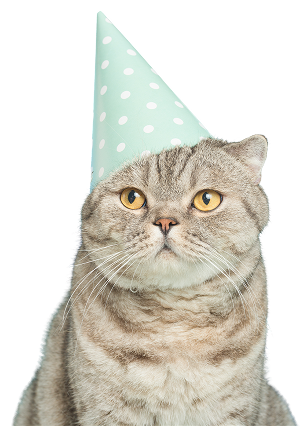how clean is cat saliva? what you should know about your cat’s tongue
Author: PawPots Team
 04 Jul 2025
04 Jul 2025
 3 min
3 min If you’ve ever had your cat lick you, you probably noticed how rough their tongue feels. But aside from that, many pet lovers wonder: is their saliva actually clean?
Some people believe that a cat’s saliva has healing powers. Others think it’s filled with bacteria. The truth lies somewhere in between—and it’s more interesting than you might expect.
🧬 What’s Inside a Cat’s Saliva?
Cat saliva is made up of:
Natural enzymes to help break down food
Mild antibacterial agents like lysozyme
Certain proteins that may support healing
This is why cats often lick their wounds. Their saliva can help clean minor cuts and reduce the risk of infection—at least for themselves.
However, this doesn’t mean their mouths are completely clean. In fact, cats carry many types of bacteria that can be dangerous to humans if passed through a bite or scratch.
🔬 Clean? Yes… But Not Sterile
Although a cat’s saliva has some bacteria-fighting compounds, it’s far from sterile. A common bacteria found in cat mouths is Pasteurella multocida. It usually doesn’t harm the cat—but for humans, especially if it enters through broken skin, it can cause infection.
So while their saliva is naturally useful for cats, it doesn’t mean it’s safe or clean for us to rely on.
🧼 Why Cats Lick Themselves So Much
Cats are serious about staying clean. Their tongues are covered in tiny, hook-like structures called papillae. These act like a built-in brush that can comb through their fur and remove dirt, loose hair, and even fleas.
Their grooming isn’t just for looks. Research has shown that grooming helps cats:
Keep their temperature stable
Remove scent to avoid predators (in wild cats)
Feel calm and secure
So in short, their tongue—plus saliva—makes up a powerful cleaning system.
🩹 Do Cats Heal With Their Saliva?
It might seem like it, but it’s not that simple. Cats do lick wounds instinctively, and their saliva can help clean the area due to its enzymes. But too much licking can actually slow healing, irritate the skin, or even cause infection.
That’s why vets often recommend a cone to stop licking after surgery. It’s helpful up to a point, but not a replacement for medical care.
⚠️ Is It Dangerous for People?
While it’s usually harmless if a cat licks your hand or face, there are exceptions.
For example:
If you have a cut, it’s best not to let your cat lick it.
If your immune system is weakened, bacteria in their saliva could cause problems.
There have been rare but real cases where people became sick after a cat licked a wound. So it’s cute—but be cautious.
🐱 Fun Fact: Saliva as Cat Cologne?
Believe it or not, cats don’t just groom to stay clean—they also use their saliva to mark themselves. Their scent travels through their saliva, so grooming helps them feel "at home" in their environment.
If your cat licks you, they might just be including you in their inner circle. A little weird… but very sweet.
🧾 Conclusion
Cat saliva is more than just spit—it’s part of a smart system that helps them stay clean, comfortable, and sometimes even heal. While it does contain antibacterial components, it’s not safe to assume it’s perfectly clean or safe for humans.
So go ahead and appreciate your cat’s grooming rituals—but maybe skip letting them “kiss” your face after a long nap.

Give Back The Love
Show your love to your pets with our high-quality, delicious and healthy meals! Show your love to your pets with our high-
quality, delicious and
healthy meals!






